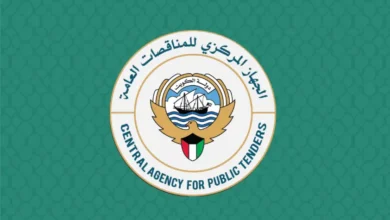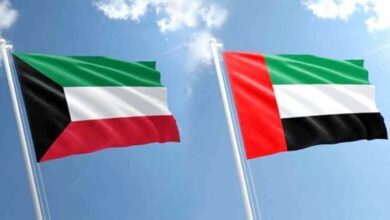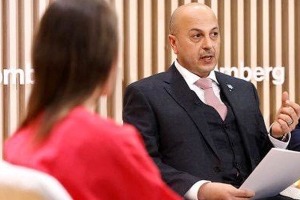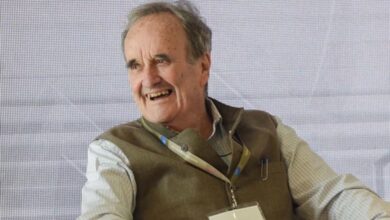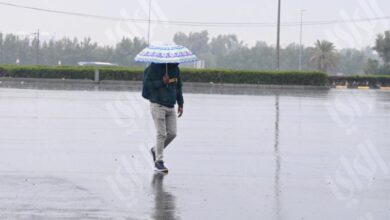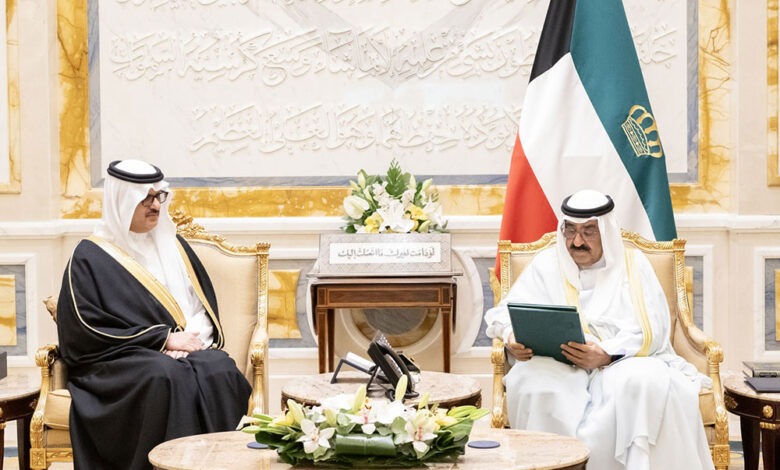
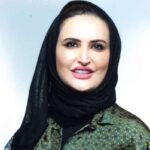
By Sheikha Suhaila Al-Sabah
Managing Editor
Amid accelerating regional transformations reshaping the contours of economic and political power in the Gulf, the State of Kuwait reaffirms its position as a country with a solid strategic orientation, capable of interacting with contemporary changes with confidence and vision.
The written letter received by His Highness the Amir Sheikh Meshal Al-Ahmad Al-Jaber Al-Sabah, (may God protect him), from His Highness the Crown Prince of Saudi Arabia, Prince Mohammed bin Salman, included a generous invitation to attend the ninth edition of the Future Investment Initiative 2025 Forum in Riyadh.
This profound symbolic and meaningful gesture reflects Kuwait’s prestigious position in the new Gulf system, which is moving with measured steps towards a post-rentier economy. The invitation not only embodies the strong bilateral relations but also represents regional recognition of Kuwait’s growing role as an effective partner in shaping the future of investment and sustainable development in the region.
In recent years, Kuwait has witnessed a qualitative leap forward in its economic path through the implementation of Kuwait Vision 2035, which has transformed from a theoretical framework into a comprehensive development project based on seven strategic pillars.
This vision expresses a political and economic ambition to rebuild the national economy on the foundations of diversity and sustainability, by empowering the private sector, modernizing legislation, and enhancing the competitiveness of the investment environment, in line with the experiences of economic recovery in the Gulf states and the world. By integrating the development dimension with the sovereign dimension, Kuwait is consolidating its political position as a state capable of reconciling political stability and economic openness.
Economic projections for 2025 indicate promising indicators, with GDP expected to grow by 3 percent, driven by a rise in the oil sector (3.4%) and a significant improvement in the performance of non-oil sectors (2.6%). These results represent the fruit of the wise reform efforts led by the state and reflect the success of public policy in creating a balance between traditional resources and emerging sectors. The reforms and policies are enhancing Kuwait’s financial security and granting it a greater margin of independence in economic decision-making, away from market fluctuations.
As part of its development strategy, Kuwait has launched a series of major projects worth more than $26 billion, focusing on vital sectors such as water, energy, and smart infrastructure. Concurrently, new laws were enacted to encourage investment and special economic zones with independent governance systems were launched, with the aim of improving administrative performance and enhancing investment attractiveness. This institutional transformation reflects not only a desire to improve the investment climate, but also a political conviction in the importance of adopting a modern development model based on productivity, efficiency, and controlled openness.
At the external level, Kuwait is pursuing a balanced foreign economic policy focused on expanding strategic partnerships with economically influential countries, such as China, South Korea, and the Sultanate of Oman, and attracting leading global companies such as Google Cloud and Joseph Gallagher.
The country has also received foreign direct investment exceeding KD200 million from 34 countries, a tangible demonstration of growing international confidence in the Kuwaiti economy and reflecting the effectiveness of economic governance in attracting quality investments. These openings are not merely trade agreements, but rather soft diplomatic tools that enhance Kuwait’s political role on the regional map of influence.
In the same context, the Kuwaiti tourism and cultural landscape is witnessing a deliberate qualitative shift, reflecting a deep awareness of the importance of economic diversification. Initiatives have included the rehabilitation of museums, the expansion of hotel infrastructure, and the organization of artistic events, paving the way for the establishment of an integrated tourism sector capable of contributing more than $1 billion to the GDP by 2029.
This cultural and tourism openness is not only an economic activity; it is also an integral element in enhancing Kuwait’s positive image and affirming its presence as an attractive and open destination to the world.
Kuwait’s upcoming participation in the Riyadh Investment Forum represents a golden opportunity to highlight the achievements of the national experience and engage in a regional and international dialogue on future economic prospects. It also reflects Kuwait’s firm orientation toward deeper strategic partnerships with economic decision-making centers in the Gulf and the world. The country, known for its political wisdom and prudent decisions, is today steadily advancing its role as an influential financial and commercial center, embracing the foundations of growth and sustainability and adopting best practices in governance and development.
Kuwait, therefore, is not at the threshold of transformation, but rather moving confidently toward the future, driven by an ambitious national vision, a resolute political will, and growing institutional capacity. In this path, Kuwait is proving its ability to overcome challenges and present a unique economic and political model characterized by balance, flexibility, and a long-term vision.
Building a competitive economy, attracting quality investments, and opening up to the global economy are not merely goals; they are national imperatives that the state is determined to achieve, so that Kuwait remains, as it has been, an element of stability, a center of influence, and a promising future destination in the heart of the Gulf.
In light of the profound transformations taking place within the Gulf system, relations between the GCC states are no longer limited to political and security dimensions. They now extend to strategic economic understandings that seek to build a new balance based on diversity and integration, not competition alone. In this context, Kuwait plays a pivotal role, reflecting its geographic location, political weight, and conscious economic vision. It represents a pivotal point between the Gulf’s accelerating development ambitions and aspirations for long-term regional stability.
Kuwait’s increasing engagement in Gulf forums and initiatives, most notably the Future Investment Initiative, not only reflects its interest in economic opportunities. but rather expresses a strategic conviction that building a new Gulf economic balance requires qualitative contributions from each country.
In this context, Kuwait represents a complementary force, capable of presenting a rational development model based on governance, measured openness, and popular participation in shaping public policies. This makes it a reliable partner in any future economic balance equation for the region.






















